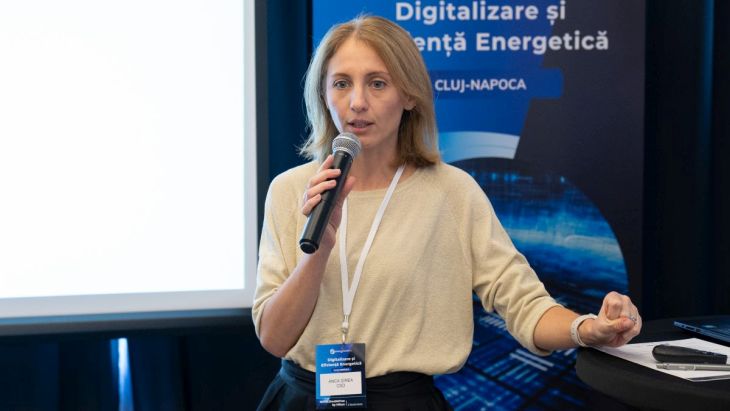About half of Romania’s population suffers from energy poverty, and last year 21% of Romanians fell into this category after paying their bills. But what is worrying is that the impact of energy poverty is increasingly spreading to the middle class.
“Fuel poverty has been a concern since 2016 and refers to the inability or difficulty of a household to make a decent living. We want to see how many Romanians fall into fuel poverty each year based on certain indicators. These people live in cities, but there are some areas more affected than others, such as rural or small urban areas. They are among us, [they don’t live in clearly defined areas], and that’s why it’s very difficult to target them with public policies. We need accessible and targeted technical solutions,” said Anca Sinea, Energy Policy Expert at the Centre for the Study of Democracy (CSD), at the conference “Digitalization and Energy Efficiency – Cluj-Napoca”, organized by Energynomics.
These data were collected by the Romanian Observatory of Energy Poverty (ORSE), an initiative of the CSD of Babeș-Bolyai University in Cluj-Napoca.
According to Anna Sinea, the only two measures aimed at those in fuel poverty are heating subsidies. The number of beneficiaries has fallen sharply as incomes have risen and many recipients have dropped out of the scheme. Nationally, the benefits of this type of support are tiny.
Energy poverty affects consumers from all backgrounds, particularly the elderly and families with more than three children, but is most prevalent in rural areas where energy consumption is high due to inefficient buildings. At the same time, there is a category of citizens who consume extremely little energy because of their low income.
DOWNLOAD THE PRESENTATION OF ANCA SINEA
“Many actually turn off their radiators. There are people in Alba-Iulia who haven’t opened their radiators for ten years. Currently, 19.8% of Romanians are in this category who do not open the radiator. There are also those who fall below the material poverty line after paying their bills. In 2022, more than 21% of Romanians will have fallen below the energy poverty line after paying their bills,” she added.
The conference “Digitalization and Energy Efficiency – Cluj-Napoca” was organised by Energynomics with the support of our partners ADC, BCR, Elgeka Ferfelis, EnergoBit, Kawasaki Gas Turbine, Noark, Parapet, Photon Energy, Volt.
